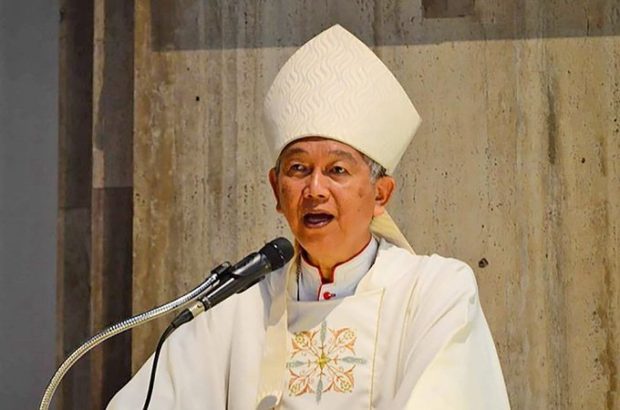MANILA, Philippines — Faith is enough to help the Catholic Church survive the COVID-19 pandemic despite the abolition of fees for church services and sacraments, Bishop Broderick Pabillo of the Manila archdiocese said on Sunday.
The Church is gradually abolishing the “arancel” system to enable Catholics to continue receiving the sacraments and using church services despite their financial difficulties caused by the pandemic.
Arancel is a system of fees for church services, such as baptism, confirmation, weddings and Masses.
Prayer, not money
In his homily during Mass at Binondo Church on Sunday, Pabillo reminded the faithful that they could find meaning in their lives through prayer rather than money.
“The arancel was abolished so that it may no longer be a hindrance to accepting the grace of God. The people are generous to the needs of the Church, and that has been proven, especially during the pandemic,” Pabillo said.
He stressed that the Church was able to survive the drastic economic effects of the pandemic due to the “generosity of the people” and not through the fees.
Last month, the Catholic Bishops’ Conference of the Philippines (CBCP) reaffirmed its commitment to abolish the arancel system amid the pandemic, as it “can be a hindrance for the poor to receive God’s grace and blessings.”
In its pastoral statement released on Jan. 28, the CBCP said the gradual abolition of the system was a concrete step in “renewing ourselves in the practice of stewardship,” and that it would instead be replaced by other stewardship programs.
“We commit ourselves to education, formation and catechesis in the spirituality of stewardship for our clergy, religious and laity in our dioceses, parishes, communities and families, in view of adopting a concrete stewardship program in our dioceses to replace the arancel system as soon as possible,” the CBCP said.
A number of parishes in the country have either completely scrapped the arancel system and put a tithing system in place, which encouraged the faithful to offer 10 percent of their annual income to the Church, or allowing them instead to donate what they could.
Fixed rates prohibited
In 2015, Socrates Villegas, CBCP president and archbishop of Lingayen-Dagupan, removed the arancel system for sacraments and sacramentals in the archdiocese and replaced it with “pananabangan,” through which churches were allowed to accept whatever amount parishioners could offer.
The archdiocese prohibited its parishes from charging fixed rates for issuing canonical certificates the following year.
In 2019, Bishop Ruperto Santos of Balanga in Bataan province ordered the removal of fees for funeral Masses and blessings in his diocese, saying that the faithful’s financial obligations to the Church “are not of prime importance and must not be a burden to them.”
The Vatican itself issued an instruction last year urging parishes to make sacraments more accessible to the poor by not “commercializing” these and charging fees.
Seeing that some dioceses may have difficulty implementing other stewardship programs due to the pandemic, the CBCP vowed to put up a service arm that would assist them.
“Let us not be afraid to give freely and cheerfully, even in times of crisis and difficulty like the COVID-19 pandemic we are presently experiencing. Let us sustain the spirit of generosity that has spontaneously overflowed during this pandemic and has kept our communities in operation,” the CBCP said. INQ
